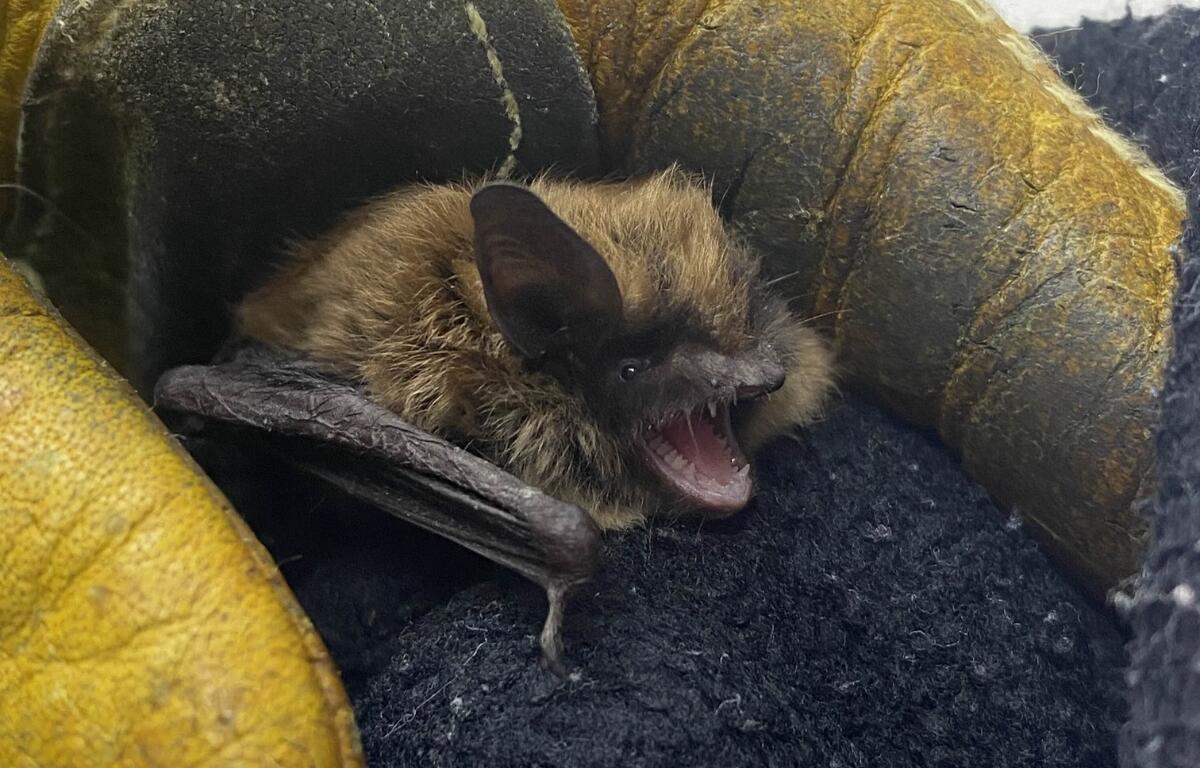AUGUSTA COUNTY, VA (Rocktown Now) — On May 30, the Wildlife Center of Virginia admitted a small, seldom-seen species — a Northern Long-eared Bat. The bat had been discovered on the side of a porch in Augusta County, where she hadn’t moved in several days. Concerned that she may be injured, the rescuers carefully contained the bat and transported her to the Center for evaluation.
Northern Long-eared Bats are small, brown bats named for their noticeably long ears, which help distinguish them from similar species. In 2023, the species was added to the federal endangered species list due to significant population declines caused by white-nose syndrome—a fungal disease that has devastated bat populations across North America.
Upon admission, the bat was alert and feisty. A physical examination revealed moderate dehydration but no signs of trauma or external injuries. Based on her condition and the recent stretch of cool weather, the veterinary team suspected the bat may have been roosting and had become weakened from a lack of food and water.
“It’s not unusual for bats to roost in the same location for several days, especially during cooler weather,” said Dr. Natalie, a veterinary intern at the Center. “But her dehydration was concerning, and she wasn’t as active as we’d expect, so we decided to keep her for treatment.”
The bat received fluids to address her dehydration, along with a specialized liquid diet and mealworms. Within just a few days, her condition improved significantly, and on June 2, the team conducted a flight test. The bat was taken to a flight enclosure, where she flew strongly around the space—ready for release.
Later that evening, the Center’s team reunited with the bat’s rescuers and released her near their home. The small bat circled once overhead before disappearing into the distance.
“It was one of my favorite releases,” said Lilly, the Center’s veterinary technician intern. “With their population continuing to decline, I never thought I’d get the chance to work with this species again.”
Bats play an essential role in ecosystems by pollinating plants, dispersing seeds, and controlling insect populations. But threats like habitat loss and white-nose syndrome have caused many species to decline. If you find a bat in need of help, avoid handling it with bare hands and contact a permitted wildlife rehabilitator for assistance. The Center’s phone line is monitored daily from 9:00 a.m. to 5:00 p.m., with an after-hours emergency line available. For more information, visit the Center’s Bats as Neighbors page.



